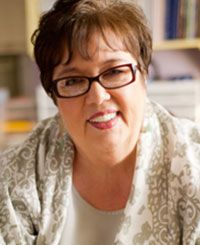Less Really Is More
Most parents of young adults struggle with a similar dilemma: wondering how involved we should be in helping our children find direction for their lives. On the one hand, we want our loved ones to be happy and successful, to have clearly defined goals and the motivation to carry them out. On the other hand, they often lack the goals and/or the motivation, which leads us to wonder how far we should push. I have learned that, generally, the less we do for them, the more they will do for themselves, though not always in the manner, or within the timeline, we would have chosen for them.
“Well, at least someone can do something around here,” Cathy and Tom agreed, as they put together an elaborate plan of requirements and tasks for Emma’s next two months. Her responsibilities included that she must stay awake during the day and sleep at night; clean up after herself in the kitchen; apply for two jobs or more per day; and work on grad school applications for two hours each day. Emma’s parents felt relieved and excited when the plan was in place; Emma was less enthusiastic. The main difference now was that there was more arguing at the dinner table.
When Cathy and Tom met with me, they felt frustrated, defeated and baffled. “We’re fighting with her every day. We just don’t get it – why won’t she do the things that will help her get ahead?” I answered “Because it’s your plan, not hers, and it’s her job developmentally to prove that you have no control over her anymore. You’re giving her a clear message that you don’t have any faith in her.” Then I gave them two questions to ponder: “What does Emma want for this next stage of her life? What can you do to turn responsibility for her life over to your daughter?”
When they returned two weeks later, Cathy and Tom had big smiles on their faces. “We listened to what you said, went home and apologized to Emma for power-struggling and listened as she explained how lost she feels and what a disappointment and a burden she feels like she is to us. We took “The Plan” off the table, offered to connect her with a career counselor, and she was thrilled. She started cleaning the kitchen and her bathroom without being asked and has started applying for jobs. We’re practicing supporting her without giving advice – it’s hard, but she sure likes it! And dinner is pleasant again.”
As we stop advising and trying to “fix” our kids, and as we learn to listen to them, we all benefit from our restraint.


